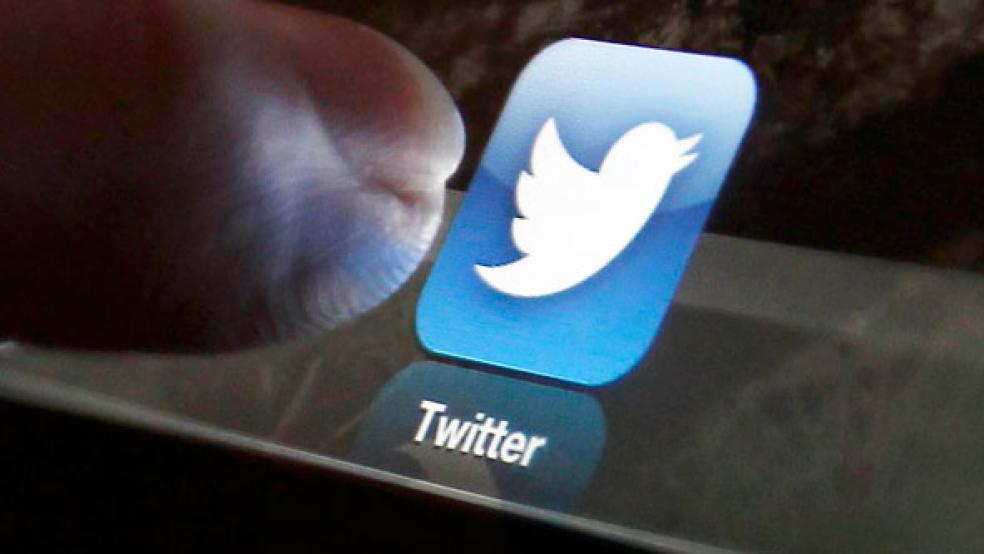After all the analysis and deconstruction of Twitter’s financial situation following the company’s public unveiling of its IPO filing last Thursday, investor relations consultant Laura Rittenhouse has identified another question that you might want to ponder before buying shares in the company.
The fact is, Rittenhouse concludes, Twitter comes up short on an important non-financial metric: its IPO letter. While not quite as abrupt as a 140-character tweet, it comes in at only 135 words, signature included, comparing unfavorably to those from Google (4,300 words) and Facebook (1,200 words). More significantly, she notes, it falls short not just on length but also on substance. “It explains what the company does, but not the business case for investing,” she argued in a press release and message to clients.
RELATED: TWITTER'S IPO: THE NUMBERS YOU NEED TO KNOW
Simply stating that Twitter “represents a service shaped by the people, for the people” and that its mission is “to give everyone the power to create and share ideas and information instantly without barriers” isn’t enough. Neither is the simple statement that “our business and revenue will always follow that mission.”
Contrast that with the statement made by Google founders Larry Page and Sergey Brin when that company went public. In their letter to potential investors, they noted the difficulty of making multi-year forecasts in the technology arena, and reassured investors that they have enough cash on hand to feel comfortable exploring business opportunities that might take three or more years to develop. They cautioned that their focus was long term and that their earnings may well reflect that, if short-term profits had to be sacrificed in the interest of larger and more strategic opportunities further out. They noted that while some business ideas developed by Google employees in the 20 percent of the time they were encouraged to set aside to brainstorm new projects were successes, others fizzled. They explained the rationale behind their dual share class structure.
Even Facebook’s shorter letter offers insights into just why it’s useful for more than keeping tabs on your friends or finding out what your ex-boyfriend from college is up to these days. The more people share information, Mark Zuckerberg explained in his IPO letter, the more businesses will be able to create products and services that are what people actually want rather than what companies and marketers think they want. That, in turn, can help create a stronger and more sustainable economy. Utopian, perhaps, but detailed and articulate.
What’s missing from the Twitter IPO letter? Several things, says Rittenhouse, who bases her analysis on Warren Buffett’s views of executive leadership and corporate stewardship. Twitter’s letter is all about its mission – giving people a new forum to communicate (in 140 characters or less). That’s fine and dandy, but it lacks anything giving insight into what problems the company plans to solve.
Facebook told potential investors that its motto was to “move fast and break things.” Google’s emphasis has been on the long term. From Twitter, nada. “Bold” is a word that pops up in early communications to investors from Amazon, Facebook and Google, and its CEOs describe what they mean by being bold. Nothing gives potential investors insight into this in the Twitter letter, which (as is customary) serves as the introduction to the S-1 filing.
Sure, there’s plenty more information and insight elsewhere in the report, in Twitter’s discussion of its business, its analysis of business risks, and in the footnotes to the financial results. But this is a great opportunity for the CEO of a company about to go public to make a big statement about his company’s culture. Having a “free and global conversation” is a great start, but it’s just that – a beginning.
Perhaps it’s hard for someone who has inhabited the Twitterverse for years to step away from the 140-character constraints it imposes and develop a thoughtful analysis of what distinguishes Twitter (beyond the obvious) and what his philosophy is in managing the business, what investors should expect from his team and what he himself commits to do. In other words: The IPO letter is an opportunity to woo investors, to make them believers in a company’s long-term prospects and mission and not just the short-term financial opportunity it offers. And Twitter’s managers appear to have overlooked that opportunity.







